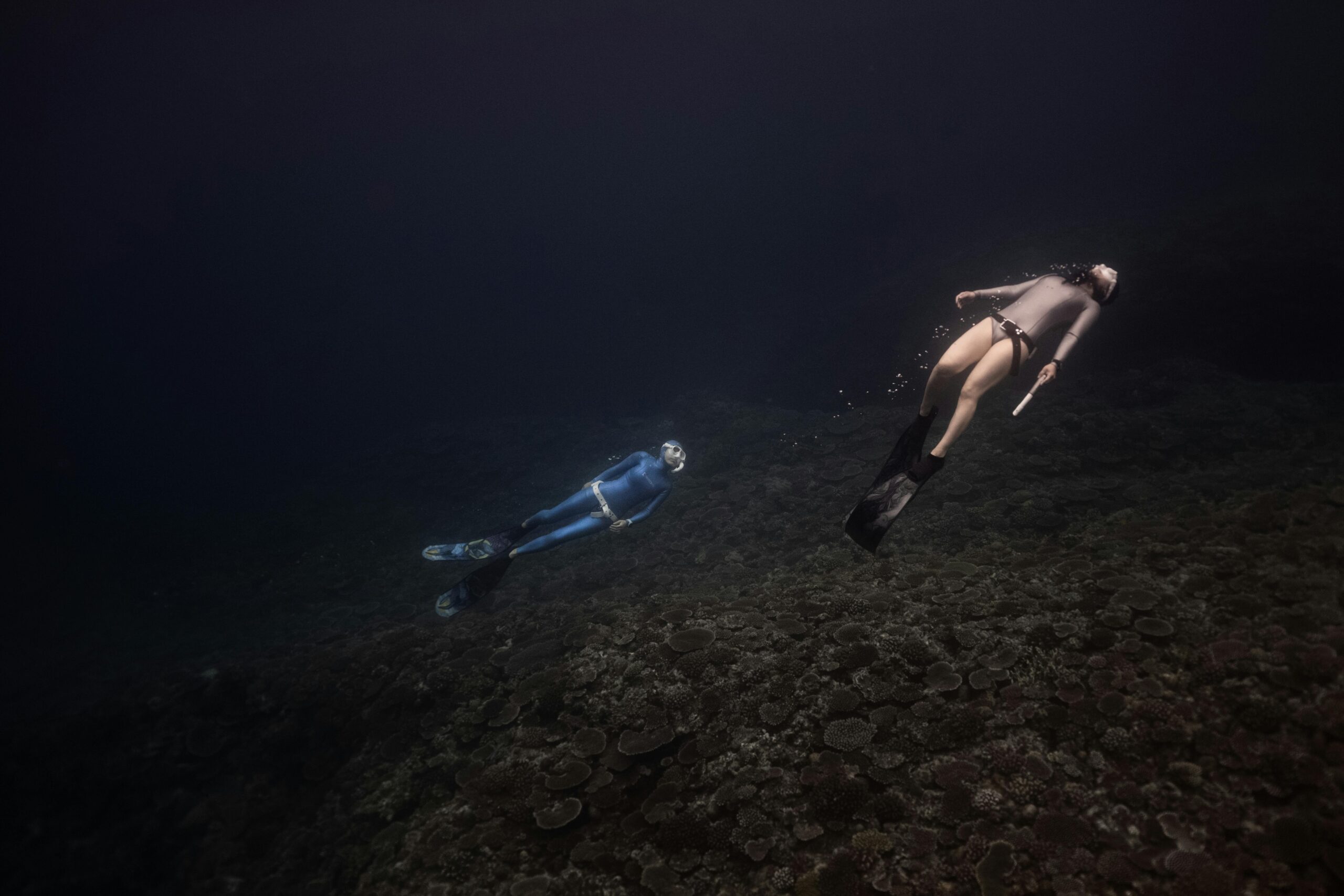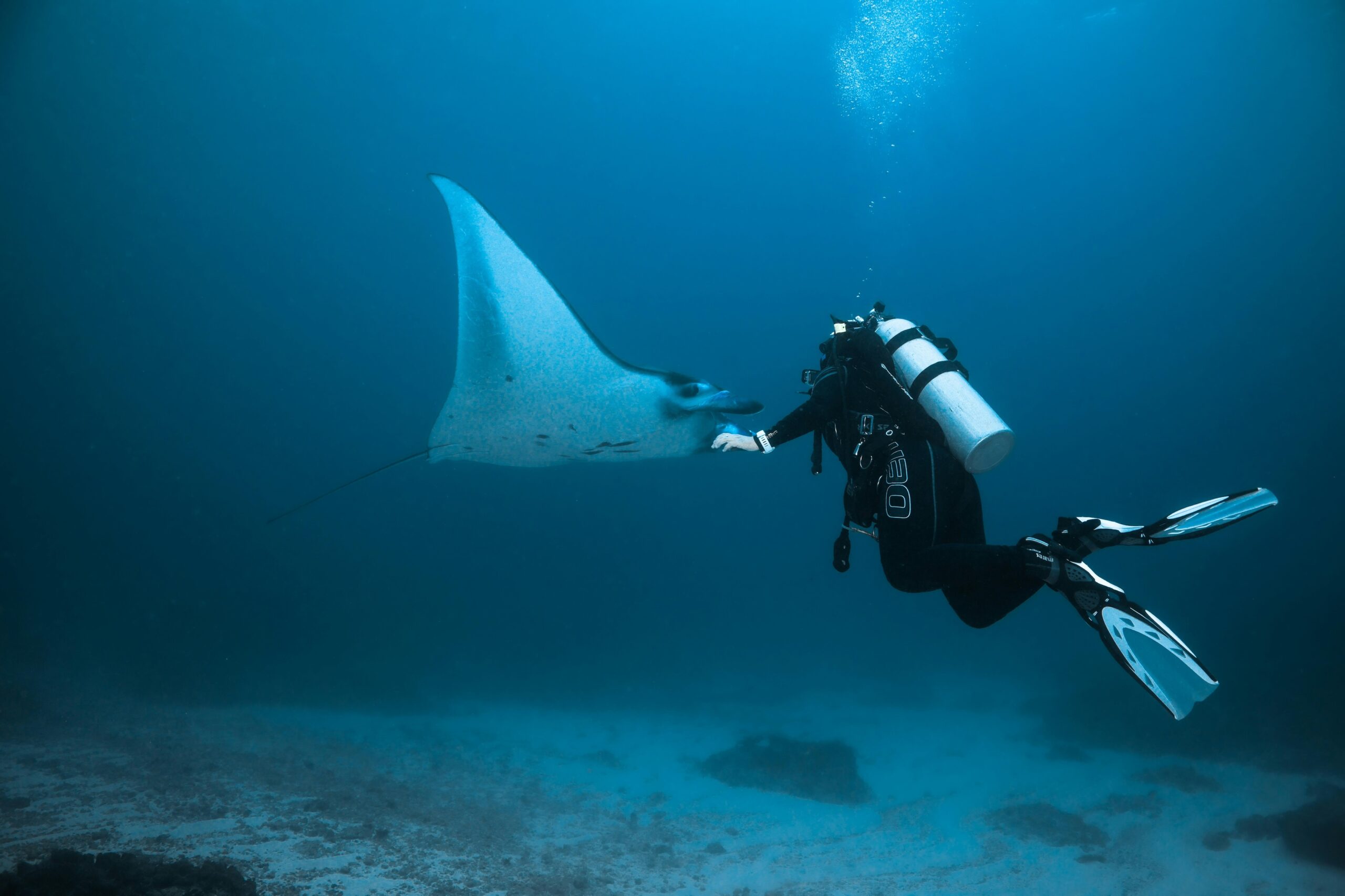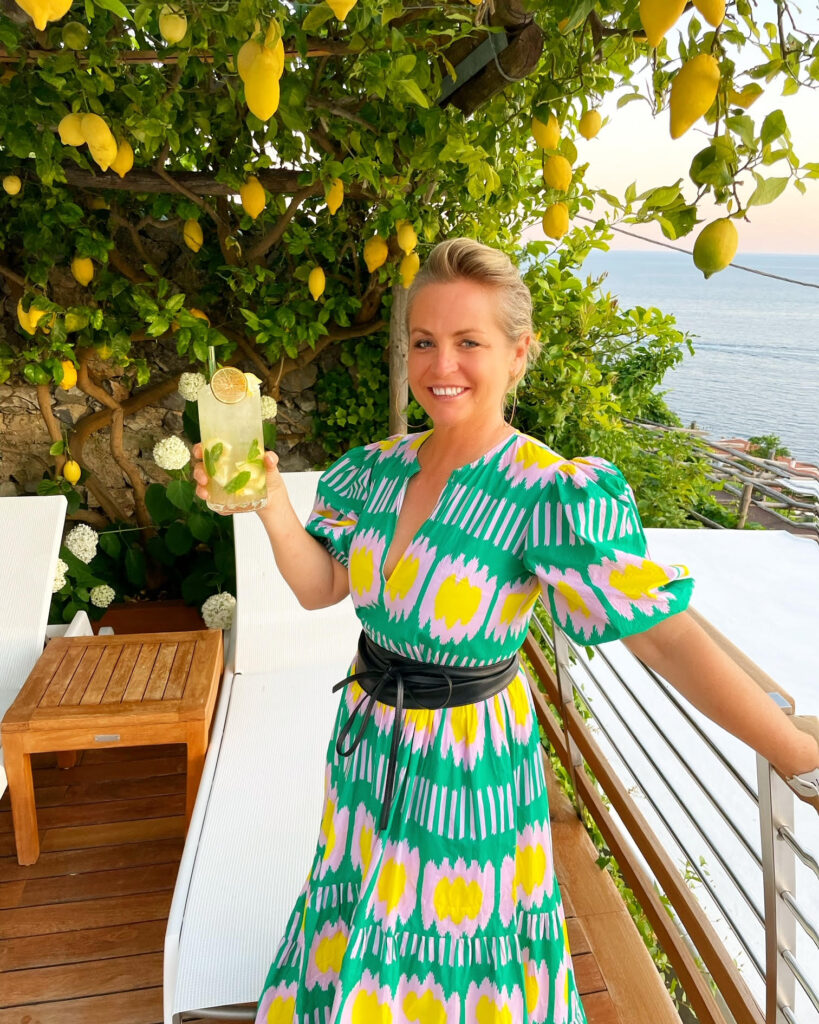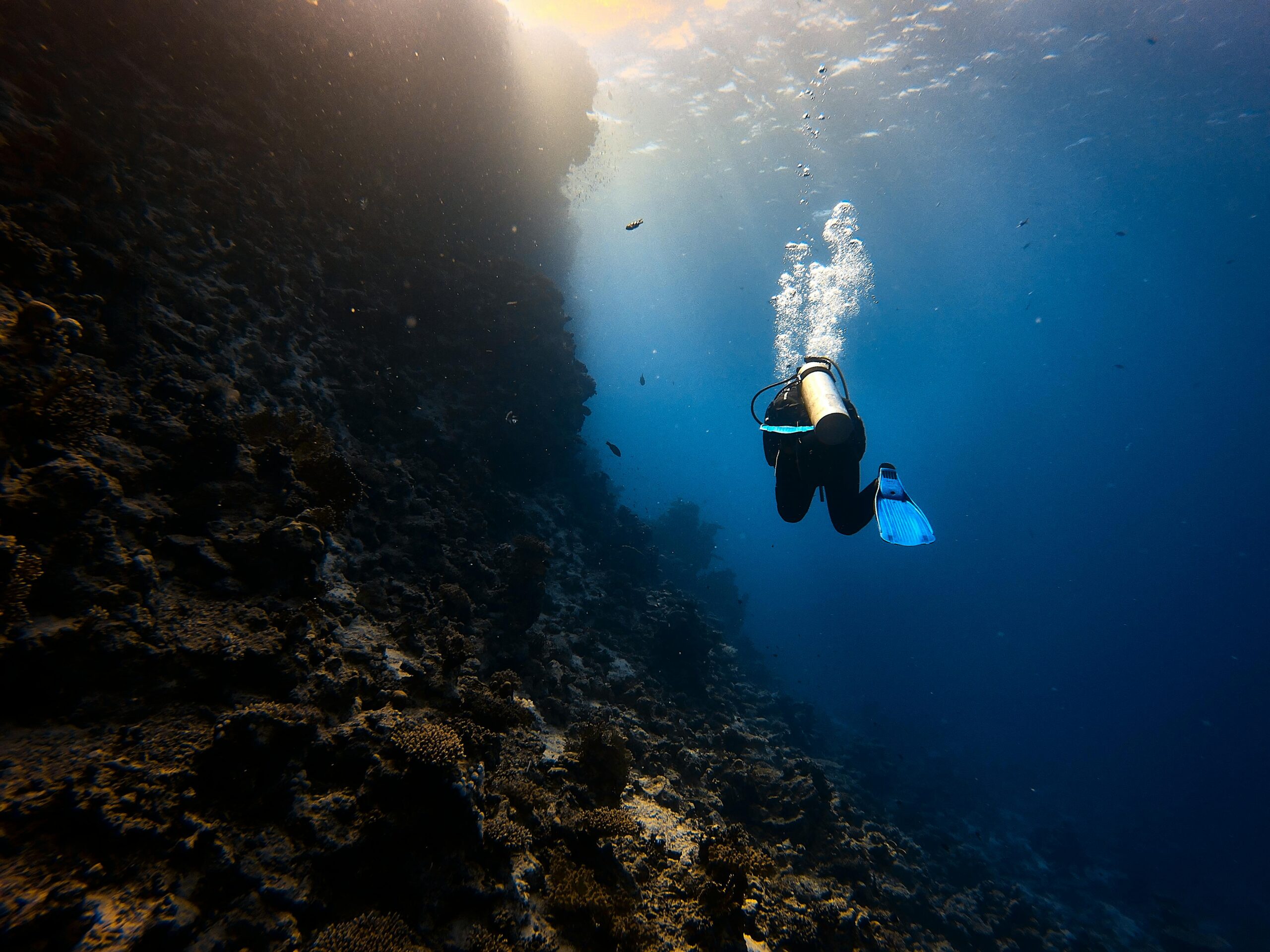“While anyone can be affected by climate grief, scuba divers, like other communities with ties to the natural world, may be more vulnerable to such feelings than others.“
*This article was first published in Scuba Diving Magazine in June 2023.
On a clear December day in the Cayman Islands, I completed my PADI Open Water Diver certification. The year was 2000. Over the next two decades, I used my new PADI certification card to dive throughout the Caribbean, Indonesia, Fiji and Southeast Asia. However, over time, I noticed a transformation unfolding across underwater landscapes. Fewer fish. Bleached and broken coral. Divemasters confirmed my anecdotal suspicions: from mightier storms to warming waters, I was bearing witness to the effects of climate change. Each dive layered fresh angst upon my subconscious. Eventually, this agitation slipped into my daily thoughts. A few years later, this insidious form of distress was given a name: climate grief.
The concept of climate grief is rooted in the broader fields of environmental psychology and ecopsychology, both part of a growing body of research around the intersection of climate change and mental health. The term “climate grief” acknowledges humans’ feelings of loss and mourning experienced in the face of ecological degradation from climate change. A related concept, “eco-anxiety,” refers to chronic worry or fear of looming environmental catastrophes. Psychologists view both as imminent mental health crises.

Free divers. Image by Pexels.
While anyone can be affected by climate grief, scuba divers, like other communities with ties to the natural world, may be more vulnerable to such feelings than others. Scuba divers often develop an emotional bond with marine life. That intimate knowledge of an underwater ecosystem gives divers firsthand knowledge of its beauty, diversity and fragility.
Unfortunately, environmental degradation isn’t going away. With each news report of ocean acidification, plastic pollution, or The Blob—a climate-change-related mass of warm water causing ecosystem shifts and die-offs—my grief grew, manifesting as a sad malaise. I still lived my life, perhaps even more than before, the need to experience life’s offerings sharpened by my sense of impending doom. Yet, I withdrew from the slow-motion funeral of diving.
It was in this frame of mind that I visited the Maldives last July. Southwest of India, the country’s 1,192 islands form the world’s lowest-lying nation, with the highest natural elevation peaking at 7.5 feet above sea level. I had wanted to see the famous ombré of Maldivian blue stretching from sugar beaches to the deepest ocean before it disappeared. The Maldives faces advancing waters and risk of submersion.
Located on the Baa Atoll in a UNESCO Biosphere Reserve, Anantara Kihavah Maldives sits on a lush island ringed with lively reef, the remnants of an ancient volcano. SEA, the hotel’s underwater glass restaurant, offers a spectacular view of the surrounding reef.
Invited to a wine tasting, I descended into a glittering hexagon cast in moonlight blue. A blacktip reef shark shimmied past a mottled grouper hanging in quiet suspension. Between sips of Austrian Chardonnay, my attention turned to the ebb and flow of sea life. “Can you snorkel on this reef?” I asked. “Absolutely,” said the general manager, who had joined our group. “I go every morning.”

Diving with manta rays in the Maldives. Image by Pexels.
The next day, I borrowed a mask and fins and swam out to the reef wall. The thrill of snorkeling through living, breathing color rushed back. That afternoon, I booked a boat trip to Hanifaru Bay to visit a squadron of manta rays. The Maldives has one of the largest known populations of manta rays in the world—though, like many ocean creatures, they face population decline.
I jumped into the iridescent water and kicked to the site. Within seconds, a half dozen graceful sea angels glided below, filter-feeding through enormous mouths. The magic of the moment cemented my decision. I’d book a dive at the next resort.
At the LUX * South Ari Atoll dive shop, I got fitted for a wetsuit and gear. Dark clouds unleashed heavy rain as the boat headed out. Without a moment to ponder the symbolism, the divemaster beckoned us forward. “Let’s go!” he mouthed, giving a thumbs down for the descent. Below the surface, I came alive. My breathing calmed into a slow rhythm, settling my buoyancy and melting my anxiety into the scenery. Swarms of little fish darted between swaying coral; three spotted eagle rays sailed off into the abyss. The Maldives reaffirmed for me that ocean life not only endured but needed protecting.
To manage climate grief, psychologists recommend several coping techniques: spending time in nature, sharing feelings and engaging with like-minded groups, and taking action, even in small meaningful ways. For divers, that could mean advocacy and conservation. Contact your policymakers or join a coral reef restoration project or beach cleanup. For me, that means writing to support ocean causes while bringing awareness to the toll of climate change on mental health. And, of course, rejoining the diving community.

Founder and CEO of Azure Road, Lauren Mowery is a longtime wine, food, and travel writer. Mowery continues to serve on Decanter Magazine’s 12-strong US editorial team. Prior to joining Decanter, she spent five years as the travel editor at Wine Enthusiast. Mowery has earned accolades for her writing and photography, having contributed travel, drinks, food, and sustainability content to publications like Forbes, The Independent, Saveur, Hemispheres, U.S. News & World Report, SCUBA Diving, Plate, Chef & Restaurant, Hotels Above Par, AAA, Fodors.com, Lonely Planet, USA Today, Men’s Journal, and Time Out, among others.
Pursuing her Master of Wine certification, she has also been a regular wine and spirits writer for Tasting Panel, Somm Journal, VinePair, Punch, and SevenFifty Daily. Mowery is a graduate of the University of Virginia and Fordham Law School, and she completed two wine harvests in South Africa.
Follow her on Instagram @AzureRoad and TikTok @AzureRoad



